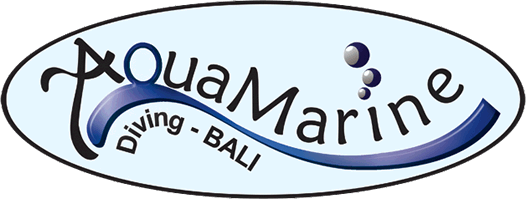Year in Review: The Blue Project's 2023 Recap of Activities
by Mardia, AMD-B’s 2023 Divemaster Internship
Throughout 2023, the Blue Project has worked tirelessly on various activities to promote ocean conservation. In this post, we will provide a recap of the activities that we have accomplished. From monthly beach clean-ups to coral restoration efforts, school visits, community collaborations, webinars, and more, we have made significant strides in our mission to protect and preserve the ocean.
Monthly Beach Clean-up and Dive Against Debris
One of our recurring events is the Monthly Beach Clean-up and Dive Against Debris, which occurs every fourth day of the month. Before diving, we dedicate approximately 30 – 45 minutes to cleaning the beach in the coastal area of Padangbai. As of December, we have collected a total of 146.94 kgs of debris, including plastic cups, fragments, cigarette butts, lids, and other non-degradable materials. After the beach clean-up, we proceeded with the dive against debris at our adopted sites, the Jetty and Blue Lagoon area. So far, we have removed 162.325 kgs of debris from small pieces to the giant debris such as ghost fishing net. Plastic materials such as fragments, cups, and packaging are the most common debris.

Installed 45 Reef Stars and Coral Monitoring
In March, in collaboration with Livingseas, we installed the first twenty reef stars for coral restoration. Over the following months, we continued to install fifteen more reef stars on April and 10 units in May. bringing the total to 45 reef stars by May. Each reef star is planted with coral fragments (Acropora branching) and we have successfully restored 810 coral fragments.
Three School Visits at Local Schools around Bali
In 2023, we were privileged to visit three schools in Pejarakan (Buleleng), Gianyar, and Kuta to raise awareness about the ocean. In Pejarakan, we focused on the mangrove ecosystem and waste management due to the proximity of the environment to the mangroves. In Gianyar, our primary emphasis was turtle conservation and how waste can impact the ecosystem. Our last school visit was in Kuta, where we educated students on proper waste management, as the school is near our office.

Community Collaboration with Mangrove Nusantara and Saba Asri
To promote environmental awareness among students in Pejarakan Buleleng, we collaborated with Mangrove Nusantara to develop an engaging educational game to inspire the younger generation to become stewards of the ocean. This year, we also collaborated with Saba Asri Sea Turtle Conservation to provide some of the kids with an unforgettable experience by releasing sea turtles on Saba Beach.

Webinar: Spreading Conservation Message
We organised a series of webinars on Zoom to expand our reach and engage more individuals in our conservation efforts. We invited renowned marine biologists, conservationists, and ocean enthusiasts to share their valuable work and insights. Through these webinars, we aim to create a community of passionate individuals dedicated to preserving our marine ecosystems.








